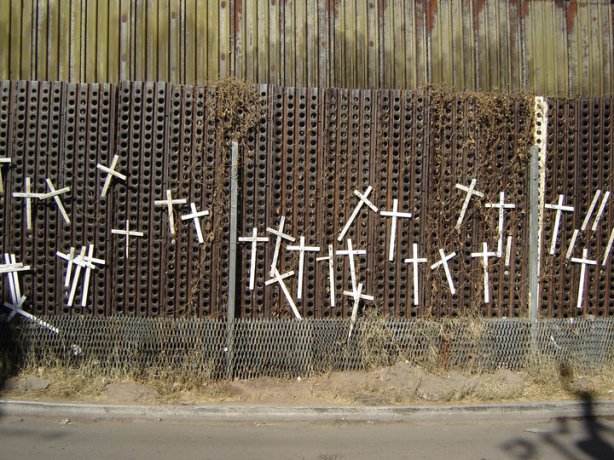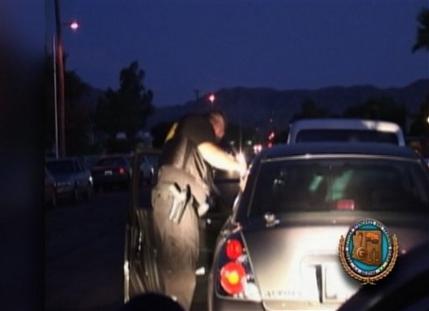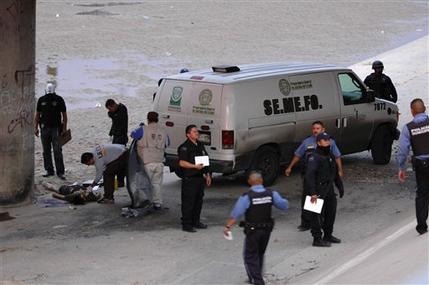Washington’s plan to build a fence on the border with Mexico has cost $3 billion and has not deterred illegal immigrants or drug traffickers from entering the country, according to a new U.S. documentary.”The Fence” hopes to show Americans, who were divided when construction of the wall was approved in 2006, that the venture is a failure as conceived and a blemish upon the United States internationally.It argues that illegals and smugglers can easily climb over, dig under and even drive over the wall, which is only a few feet (meters) high in parts, has no razor wire, and abruptly ends in the desert.
 “One of the most confounding and little-known realities of the fence is that it only covers about one third of the 2,000-mile (3,218-km) border,” said Rory Kennedy, the director and narrator.Kennedy, who is a daughter of the late Senator Robert Kennedy, spent weeks traveling along the border from California to Texas as the fence was being built in 2009. It is expected to be completed by the end of this year.
“One of the most confounding and little-known realities of the fence is that it only covers about one third of the 2,000-mile (3,218-km) border,” said Rory Kennedy, the director and narrator.Kennedy, who is a daughter of the late Senator Robert Kennedy, spent weeks traveling along the border from California to Texas as the fence was being built in 2009. It is expected to be completed by the end of this year.
Up to 500 people die every year crossing the U.S.-Mexican border, according to U.S. immigration experts and the Mexican government, a sharp jump from a decade ago. Tougher border security and the fence’s construction have forced migrants to take more dangerous, remote routes into the United States.Some 650 miles of the 670-mile wall called for under the Secure Fence Act and signed into law by U.S. President George W. Bush in October 2006 have been built. It contains 120,000 tons of metal and materials, ranging from railroad ties to concrete and chain link fencing.
“COMPLETE THE DANGED FENCE”
Lined in parts with stadium-style lights, cameras and roads to allow U.S. agents to patrol, the fence was partly a response to the September 11, 2001 attacks on the United States. It also aims to stop terrorists from crossing over from Mexico.”This was put up to illustrate to Joe whoever up in Dubuque (Iowa) or someplace that they see a picture of this and … they think ‘oh yeah, that’ll stop them’,” Arizona ranch owner Bill Odle said in the film. “Well of course it doesn’t.”
But it remains a magnet for Republicans keen to show their get-tough credentials in the run-up to the November U.S. elections. Arizona Republican John McCain, facing his toughest re-election battle in years for the Senate, demanded that the government in May to “complete the danged fence.”Despite calls for a fence along the entire U.S.-Mexican border, the terrain, which ranges from swamps to deserts, makes that idea almost impossible and financially prohibitive.
U.S. law enforcement uses helicopters, unmanned planes and agents in watchtowers and in vehicles to monitor the area stretching from the Tijuana-San Diego crossing in California to the Matamoros-Brownsville crossing in Texas around the clock.U.S. Border Patrol agents say the wall and virtual fencing cut the number of people caught trying to cross into the United States by a quarter in the fiscal year 2009.
Immigration experts counter that the deep U.S. recession in 2008-2009 and the resulting lack of jobs in the world’s biggest economy was a bigger factor behind the drop.Even with a sluggish economy, 300,000 illegal immigrants entered the United States every year between 2007 and 2009, according to the nonpartisan Pew Hispanic Center.But critics, both in the United States and Mexico, where there was an outcry when the plan was approved, also are questioning the wisdom of spending billions on the fence during hard economic times.
Future U.S. administrations are likely to spend $6.5 billion on maintenance of the fence over the next 20 years, the United States Government Accountability Office says, although researchers at the U.S. Congress say it could be more.The documentary airs on Thursday on U.S. cable television channel HBO.(Reuters)



